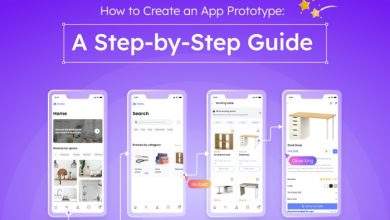
The legal tech landscape has changed drastically in the last few years. What once seemed like futuristic hype is now transforming how law firms operate day to day. One area where this shift is especially clear is legal research. Tools powered by legal AI have moved from experimental add-ons to mission-critical resources. But not all AI tools are created equal—and choosing the right one can make or break your firm’s productivity.
Before you invest in an AI legal research platform, it’s essential to test and evaluate it with the same level of due diligence you’d apply to any critical business decision. Here’s how to go beyond marketing claims and identify whether a platform truly meets your needs.
Understand Your Use Case First
Before you even sign up for a demo, define what success looks like for your firm. Ask these foundational questions:
- What type of law do we primarily practice?
- Who will be using the AI tool—associates, paralegals, partners, legal ops?
- What problems are we solving—speed, accuracy, workload, cost reduction?
- How important is integration with our current tech stack?
By clarifying your use case, you create a clear lens through which to assess features, pricing, and performance.
Schedule Live Demos With Real Users
Product demos are your first real look under the hood. But many firms make the mistake of letting vendors drive the entire conversation. Instead, flip the script.
Involve the actual end users—whether it’s research attorneys, junior associates, or support staff. Watch how they interact with the tool. Are they comfortable using it after just a few minutes of guidance? Does it simplify the research process or complicate it?
Pay attention to how intuitive the UI is, how quickly it returns relevant results, and whether the answers feel trustworthy. Real-time observation can reveal usability issues that aren’t obvious on a sales sheet.
Evaluate the Core Features That Matter
Not every platform does everything well. During your evaluation, focus on the core features that support your firm’s workflow. These may include:
- Natural language search: Can users type in a legal question in plain English and receive useful results?
- Citation analysis: Does the platform flag overruled or outdated cases?
- Jurisdiction filters: Can you tailor research by court or geography?
- AI-generated case summaries: Are they accurate, or do they lose key legal nuance?
- Search history and collaboration tools: Can teams work together efficiently using the platform?
The best legal AI tools strike a balance between power and usability. They simplify the process without compromising legal accuracy.
Run a Side-by-Side Research Test
One of the most effective evaluation methods is a side-by-side test. Choose a real legal question—one your firm has handled before—and run it through each platform you’re considering.
Compare:
- The relevance and depth of the results
- The speed of retrieval
- The accuracy of citations and recommendations
- The clarity of any AI-generated summaries or annotations
Document everything. You’ll likely notice major differences in how tools handle complexity, filter irrelevant information, or surface hidden precedents.
Assess AI Transparency and Explainability
Legal professionals have a responsibility to understand the tools they use—especially when it comes to AI. Look for platforms that offer some level of transparency into how their algorithms work.
Ask questions like:
- How is the AI trained?
- Is it based on publicly available data, proprietary sources, or both?
- Can users trace how a conclusion or summary was generated?
- Does the tool flag AI-generated content clearly?
Lack of transparency can lead to ethical issues, especially when clients are depending on the accuracy of your legal analysis. You want a system that not only works well but also explains itself when needed.
Test for Data Privacy and Security Compliance
Law firms handle highly sensitive information. Before selecting any legal AI platform, review its approach to data security and privacy.
Ask about:
- Encryption protocols (at rest and in transit)
- Compliance with ABA Model Rules and applicable state bar guidelines
- Whether your firm’s data will be used to train the model
- Where and how data is stored
- Access control options for internal teams
A reliable provider should be transparent and forthcoming about how they safeguard your firm’s and your clients’ information.
Consider Integration and Compatibility
Even the most powerful platform loses value if it can’t work within your existing system. A strong legal AI platform should integrate with the tools your team already uses—like case management systems, document repositories, or billing software.
Also consider single sign-on (SSO), API access, and compatibility with Microsoft Word, PDF formats, and collaboration tools like Slack or Teams. Friction in these areas could slow your team down rather than streamline your process.
Start With a Pilot Program
Most vendors offer free trials or limited-use pilots. Take advantage of them.
Rather than assigning one person to test the tool, allow a small group across departments to use it for real client matters. Encourage them to document their experience:
- Were the results helpful?
- Did it reduce research time?
- Did they feel confident citing AI-suggested sources?
A structured pilot can reveal how the platform performs under pressure and whether it can scale across your firm.
Measure ROI Before Committing Long Term
Ultimately, legal AI should improve your firm’s efficiency, accuracy, and profitability. But make sure you can actually measure that.
Track:
- Time saved on research
- Number of relevant cases surfaced
- Cost per user or per matter
- Reduction in missed citations or errors
- User satisfaction across roles
If the tool doesn’t deliver clear value after a full trial or pilot, keep shopping.
Conclusion
Choosing an AI legal research tool is not just a tech decision—it’s a strategic one. With the right platform, your team can reduce time spent on repetitive tasks, surface critical legal insights faster, and make stronger, more confident decisions.
But no tool is a one-size-fits-all solution. Take your time. Test thoroughly. And bring your team into the process early. When you invest wisely, legal AI becomes more than a convenience—it becomes a competitive edge.




